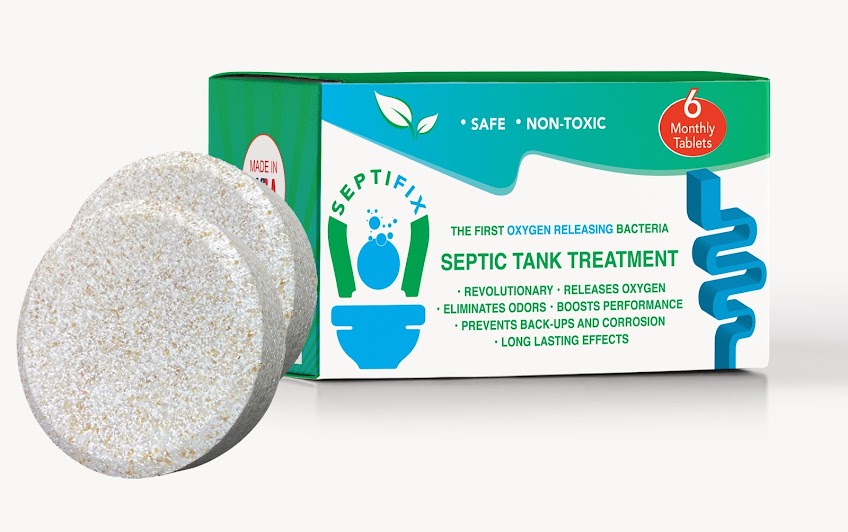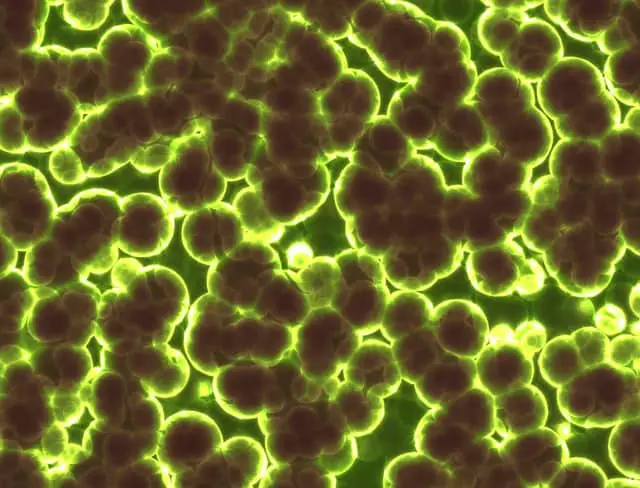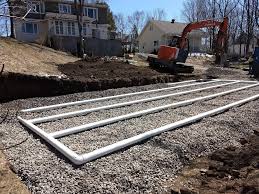Septic Tank Enzymes Explained- Plus How & When To Best Use Them For A Health Septic System
If you have a septic system, then you can almost bet a time will come when you hear about Septic tank additives, bacteria, and enzymes.
If you are like most people it can all be a bit confusing. In this article, we will make sure to explain exactly what septic enzymes are and how they work in your septic system.
Call Septic Service Pros 1.855-925-0760 For Service or Request a Quote
What are septic system enzymes?
So, let’s start with the most basic question. What are septic tank enzymes? Septic system enzymes are a type of enzyme that is used to break down organic matter in septic systems. Enzymes are important for septic systems because they help to break down the waste and sludge that can build up over time and clog the system.
Septic system enzymes can be increased with additives that are designed to help break down waste in septic tanks. However, most of the time they may not be necessary because the bacteria that live in the tank already do their job.
Want to watch a video instead?
Types of enzymes found in septic systems
Septic tanks, as the name suggests, are tanks that are used to treat wastewater from homes and buildings that are not connected to a municipal sewer system. The wastewater enters the tank, where it is treated by bacteria. The bacteria break down the waste in the tank and convert it into sludge and effluent.
The three main types of enzymes found in septic systems are carbohydrase, protease, and lipase. These enzymes break down carbohydrates, proteins, and lipids, respectively. Enzymes are important for breaking down these substances because they can help to speed up the process of decomposition.
Bacteria cannot overcome poor biological conditions or kill existing bacteria that are already dead. A biological additive is a substance that improves biological conditions and boosts the activity of beneficial bacteria. Biological additives are often comprised of nutrients and natural ingredients that improve bacterial stimulation, metabolism, and growth rate
For instance, one of our most highly recommended septic tank treatments is Septifix because it contains 14 strains of aerobic bacteria – over 10 billion bacteria strains per gram, oxygenation, and pH regulating compounds that safely and effectively boost the growth of bacteria colonies inside your septic tank, allowing them to thrive for up to 90 days. Check our Septifix review here.
Call Septic Service Pros 1.855-925-0760 For Service or Request a Quote
You can visit the Septifix website here to learn how it can help remedy the following septic system challenges:
- reduce, then eliminate noxious odors (the smell) extremely fast – in just three to five days!
- break down and eliminate all organic sludge from septic tanks, including natural oils, grease and organic hydrocarbons.
- destroy all the bad anaerobic bacteria like e-coli or salmonella and other harmful pathogens which are usually found in septic tanks and can cause many health problems to your family.
- prevent back-ups, clogs, and all other associated problems in septic tank systems, including corrosion.
- reduce, and in many cases, eliminate the need to have your septic tank pumped!

Let’s take a little deeper look at some of the common enzymes in a septic tank and what they do…
What Xylanase does in a septic tank?
Xylanase breaks down xylan, a type of hemicellulose found in plant cell walls. When the enzyme is not present at adequate levels, septic systems can become clogged with undigested plant material.
What Urease does do in a septic tank?
Urease is an enzyme that helps the process along by breaking down the urea in urine. Without urease, the ammonia in urine would build up and create a toxic environment in the tank.
What Cellulase does do in a septic tank?
The anaerobic bacteria need a food source to survive and grow. Cellulase is a type of enzyme that breaks down cellulose, which is a component of plant cell walls. Cellulose is a high-energy food source for the anaerobic bacteria, so adding cellulase to your septic system will help the anaerobic bacteria break down more waste and reduce the load on your tank.
What is Amylase and why is it important to a septic tank?
This process is important because it allows the bacteria in a septic system to digest and decompose organic matter, which helps to keep the tank clean and functioning properly. Without amylase, the bacteria in a septic system would not be able to do their job effectively, and the tank would eventually become clogged with waste.
What Lipase does in a septic tank?
The bacteria need a food source to survive, and that’s where lipase comes in. Lipase is an enzyme that breaks down fat molecules into glycerol and fatty acids. These fatty acids are then used as a food source by the bacteria. Without lipase, the bacteria would not be able to break down fats, and the septic tank would fill up with sludge.
What Protease does in a septic tank?
This process produces several enzymes, including protease. Protease is a protein-digesting enzyme that helps to break down the proteins in the waste material. This allows the other bacteria to more easily digest the waste and convert it into methane and carbon dioxide.
How Do Enzymes Work To Maintain and Clean Your Septic Tank
Septic tanks use bacteria to break down and decompose the waste in the tank. Enzymes are a specific type of bacteria that helps to break down the waste more quickly and efficiently.
Septic tanks are a common sight in rural America. They are used to collect household waste and human waste. The septic tank works slowly to clean the bacteria from the water and grease that comes into contact with it on an everyday basis. For instance, Septifix’s scientifically created formula can reduce sludge in your septic tank to the point where you can reduce or eliminate the need for pumping.
The first phase is the process in which bacteria act on organic waste aggressively and break it down into nutrients. The sludge that forms at the bottom of the tank (partially digested waste) is made up of undigested organic matter, dirt, and plastic bits.
The second phase takes place when enzymes attach to waste molecules and break them down into nutrients for bacteria to take up. Enzymes help break down waste like fats, oil, grease, starch, urea and other waste. Enzymes play a major role in the organic waste degradation process of septic tanks.
Enzymes are sensitive to pH levels so they work best in an environment where there is a neutral or slightly alkaline pH level. When enzymes are added to wastewater treatment plants, they can increase biodegradation by 50-60%.
Mechanical solutions like pumps can be expensive and not permanent solutions whereas enzymatic solutions are eco-friendly and safe for humans as well as animals.
Septic tank cleaners are available with natural and eco-friendly ingredients that can help in maintaining the function of septic tanks. The bacteria in the product produce enzymes that degrade organic waste and fecal matter. Septifix is also 100% natural.
Here is a list of 7 Septic Tank Treatments you can consider, also an article on how to create a homemade septic tank treatment.
Do You Need Enzymes and Bacteria Additives for Your Septic System?
It is a common misconception that septic systems require enzymes and bacteria additives. This is not the case! In fact, adding these products to your septic system can actually be harmful to a healthy septic system.
Enzymes and bacteria additives are not necessary for septic systems because they are already naturally present in the environment. These products can actually upset the delicate balance of organisms in your septic tank and cause problems with your system.
If you are having issues with your septic system, the best course of action is to contact a professional to assess the situation. Do not add any enzymes or bacteria additives to your system without first consulting a septic expert.
If you are going to add a septic system treatment to keep your septic tank bacteria within the affective range, make sure to remain consistent when using bacteria within your septic tank.
These bacteria products can give your tank a boost when it comes to breaking down solid waste and sewage.
Call Septic Service Pros 1.855-925-0760 For Service or Request a Quote
Are enzymes safe for septic systems?
Septic systems are an important part of our everyday lives, and it’s crucial to keep them clean and running properly. One way to do this is by using enzymes, which break down waste and help keep your tank running smoothly.
Enzymes are a safe and non-corrosive way to clean your septic tank, and the EPA has deemed the organisms in Bio-Tab safe for use in septic systems.
The Cabin Obsession includes eco-friendly, chemical-free additives that can be used on 1,000 gallon tanks, providing odor control and protection at a low price point. The Green Gobbler treatment is for 1,500 gallon tanks and provides odor control as well as protection for drains and pipes. This treatment breaks down clogs, oil, grease, fats and more–making it a convenient option because it’s added directly to your septic tank. Keep your septic system running smoothly with enzymes!
Types of Septic Tank Treatments To Keep Your Septic Tank Running Smoothly
There are a few different types of septic tank treatments that can help keep your septic tank running smoothly. These include bacteria-based treatments, enzyme-based treatments, and chemical treatments. Bacteria-based treatments help to break down the solid waste in your septic tank, while enzyme-based treatments help to decompose the organic matter. Chemical treatments are also available, but they should only be used as a last resort.
Bacteria-based septic tank treatments are used to help reduce the amount of waste water flowing into a septic tank. When used properly, these treatments can increase the life of a septic tank and reduce the amount of maintenance required. Many different types of bacteria are available in septic tank treatments. The most common types are anaerobic bacteria, which thrive in low-oxygen environments, and aerobic bacteria, which need oxygen to survive.
We recommend Septifix as our number 1 septic additive, but if you want to see a full list visit this article.
Bacteria-based septic tank treatments work by breaking down the solid matter in waste water. This reduces the amount of water that flows through the septic system and prevents clogs from forming. Bacteria also help to control odors by breaking down organic matter that causes smells. Most septic tank treatments contain both anaerobic and aerobic bacteria.
The number of different types of bacteria found in septic tank treatments can vary depending on the product. Some products may only contain one type of bacterium while others may contain several different strains. The number of different strains found in a product will determine its effectiveness at breaking down solid matter and reducing odors. In most cases, products containing more than one strain are more effective than those that only contain one strain.
Septic tanks are designed to break down solid matter over time, but this process can be accelerated by using bacteria-based septic tank treatments. When used correctly, these products can help to reduce the amount of time it takes for a septic system to break down solid matter. This means that a septic system will not have to be replaced as often, which can save money over time. In addition, using bacteria-based septic tank treatments can help to improve the quality of water that flows through a septic system.
Bacteria-based septic tank treatments can be found at many hardware stores and online retailers. It is important to read all directions carefully before using any type of treatment so that you do not use too much or too little product. Using too much product can actually harm your septic system instead of helping it work better.
Benefits of adding enzymes to your septic system
Septic tanks work best when they have a healthy population of bacteria. These bacteria break down the organic waste in the tank, which allows the tank to function properly. However, there are many things that can kill these bacteria, such as poor maintenance or using harsh chemicals.
If you’re having trouble with your septic system, one solution may be to add enzymes to your wastewater system. Enzymes are proteins that help bacteria survive and thrive. They also help the bacteria digest waste properly. This can speed up the initial waste breakdown phase, but it won’t overcome the conditions that are killing the bacteria.
Adding enzymes is not a viable solution for every septic system problem, but it can be helpful in some cases. If you’re having problems with your septic tank, speak to an expert about enzymes and septic systems. They will be able to tell you if this is a good option for you and how to go about adding them to your system.
Enzymes offer many benefits for septic systems:
-They help keep bacteria healthy and more efficient at breaking down organic waste
-They improve the performance of your system
Can you put too many enzymes in your septic system?
Yes, you can put too many enzymes in your septic system. If you add too many biological additives, the tank will become overloaded with bacteria and cause a build-up of methane. In addition, if you add too much inorganic acid or organic solvent, the septic system can break down.
Herring Sanitation recommends using an eco-friendly additive for septic tanks, grease traps, mounds, cesspools, drainfields, ATU systems, home drains, floor drains, dump sites and lift stations. The additive will degrade the soil structure in surrounding areas and reduce the ability of a system to treat water effluent.
If you need some professional help or to have your septic system – Call 855.925.0760










